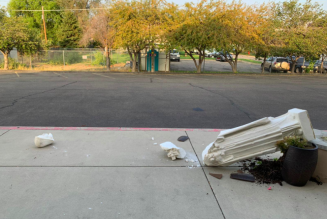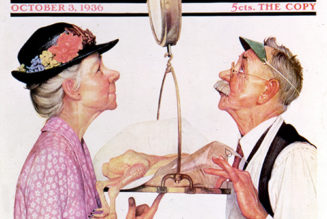25th Sunday in Ordinary Time
By Fr. Victor Feltes
The landowner in Jesus’ parable recruits workers throughout the day. He goes to the marketplace at dawn, at nine, at noon, at three, and at five, hiring laborers each time and sending them to work in his vineyard. At the end of the day, he pays his longest laborers one silver denarius coin (the wage to which they had previously agreed), but he surprisingly also pays even his briefest employees the same amount. When some grumble at this, the boss replies, “My friend, I am not cheating you. Did you not agree with me for the usual daily wage? …Am I not free to do as I wish with my own money? Are you envious because I am generous?” Why did the employer risk this HR controversy? Why did he wish to pay the later workers so generously? The Old Covenant gives us insight into his motivation.
God commanded in the Book of Leviticus, “Do not hold back the wages of a hired worker overnight.” Then the Book of Deuteronomy explains why: “On each day you shall pay the servant’s wages before the sun goes down, since the servant is poor and is counting on them.” Now, if this vineyard owner had promptly paid his one-hour workers proportionally less than his full-day workers, that’s equal pay for equal work. But he pays all of them the same full wage because he is acting mercifully. He understands that his servants are poor, that their families are poor, and that they depend upon this pay for their daily bread. Rather than letting them go hungry, he generously provides. We see expressed throughout the Scriptures, God’s special care and concern for the poor and the vulnerable and our God calls us to be like himself.
Still, we can feel the grumblers’ grievance when they complain: “These last ones worked only one hour, and you have made them equal to us, who bore the day’s burden and the heat!” And yet, those last-hired laborers were trying their best. They report that they were standing idle in the marketplace all day simply because nobody had hired them. Assuming they aren’t lying, these workers were not lazy, just unlucky. They came when they were called and received an equal reward.
In this parable, our Lord is the landowner, we are his laborers, and our payment is heaven. This parable presents hope for the unconverted. Though your days may have been wasted up to now, you can still heed our Lord’s calling and receive his merciful generosity as your reward. It may be your final hour, but do not despair and walk away forever. Answer Christ’s call. Believe, repent, and be saved.
For Christians who feel that they have labored hard and long for the Lord, I wish to address a bitter temptation you might be feeling: “If those who repent on their deathbeds get to go to heaven too, why shouldn’t I sin and just repent later?” For starters, this attitude is dangerously presumptuous. You do not know the final hour when the sun will set on your life. You may never get around to repenting before facing your eternal judgment. Furthermore, your repentance must be sincere, and God cannot be fooled.
And finally, do not imagine that the grass is greener away from Jesus. Yes, laborers in Christ’s vineyard must bear burdens and heat, yet those outside the vineyard are not at rest. They stand all day in the uncomfortable marketplace, spiritually impoverished, without true purpose, and anxious about their future. Remember that living a life apart from Christ is no paradise.
Jesus’ challenging parable about the generous landowner and his vineyard workers reminds us of God’s special concern for the poor and of our calling to practice the same. It reminds us of God’s incredible mercy, and the need for all of us to answer his call to repentance. And it reminds us of God’s loving generosity, that he is all good, and deserving of all our love.










